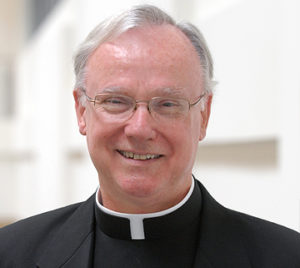Feast of Epiphany
January 7, 2018

Readings:
First Reading: Isaiah 60: 1-6
Responsorial Psalm: Psalm 72: 1-2, 7-8, 10-11, 12-13
Second Reading: Ephesians 3: 2-3A, 5-6
Gospel: Matthew 2: 1-12
This is the time of the year when figures of the three kings edge their way into nativity scenes. Matthew’s Gospel is the source of this intriguing and seemingly innocent feature of the Christmas story. “Magi,” probably astrologers from Persia (present day Iran, by the way…), catch sight of a brilliant star in the sky and conclude it is a portent of a new king being born. They track the light of the star to Jerusalem and there confer with Herod and his court, including the “chief priests and the scribes of the people.” (Although the Magi can read the stars, Matthew’s Jewish Christian Gospel affirms that they must come to Israel and learn from the Scriptures where to find the newborn king!). The religious leaders inform Herod that the anointed king, the Christ, will be born in Bethlehem and the treacherous Herod sends the Magi on their way, but also tells them to let him know when they find the child so that he, too, can come and offer homage. The Magi continue their quest, with the star still guiding them, and wondrously they discover “the child with Mary his mother.” They “prostrate themselves and did him homage,” while offering their royal gifts to the one to whom the Psalm response acclaims, “Lord, every nation on earth will adore you.”
Now the story turns darker… The Magi, like Joseph, are warned in a dream not to return to Herod and they take a different way home. The reader knows that Herod, like so many despots in history, is violent and vindictive. He intends to destroy this apparent rival for his throne and will stop at nothing to hold on to his power, even slaughtering innocent children. Joseph, Mary, and the child have to flee to Egypt under cover of darkness, refugees facing loss of their home under the threat of violence.
What a story this is and how powerfully relevant for world today. Into this gospel scene Matthew packs several biblical motifs that stand at the heart of our Christian faith. First of all, the Magi story anticipates the universal embrace of the gospel. Strangers, people of good will from a culture far different than Judaism, motivated by their love of nature and their search for the truth, are embraced here. Authentic Christian faith is not narrow or sectarian, but reaches out in respect and expansive love to all of God’s children. Here Matthew’s Gospel anticipates the mission to the Gentiles, reflecting the expansive and inclusive vision of the first reading for this feast from the prophet Isaiah: “Rise up in splendor, Jerusalem! Your light has come…Nations shall walk by your light and kings by your shining radiance.” So, too, in the second reading from Ephesians, Paul’s universal mission is described as a “stewardship of God’s grace,” manifested in his conviction that the “Gentiles are coheirs, members of the same body, and copartners in the promise in Christ Jesus through the gospel.”
This vision of God’s generous and expansive love for all peoples is contrasted with a different world view–one that uses naked power to oppress and divide peoples. Herod lies to the Magi. He does not want to pay homage to Christ but to kill him. Herod doesn’t care what suffering he inflicts on people as long as he can prosper (by the way, Matthew’s portrait of Herod as both shrewd and cruel is historically accurate). Here in the threat of Herod and the flight of the Holy Family Matthew’s Gospel anticipates the passion of Jesus.
Read in the light of contemporary experience, this feast is not a quaint fairy tale from the past but a bold proclamation of the gospel that contrasts two starkly different worldviews: one that views our diverse world as fundamentally united through the beauty of God’s creation and the power of God’s love; another that sees the world as a stark and dangerous arena of competing and threatening forces. Witnessing to the Christian view of the world by what we say and what we do is becoming more urgent every day.
This is an adaptation of a weekly column, “Perspectives on Scripture,” that appears in The Chicago Catholic archdiocesan paper; used with permission
Rev. Donald Senior, CP